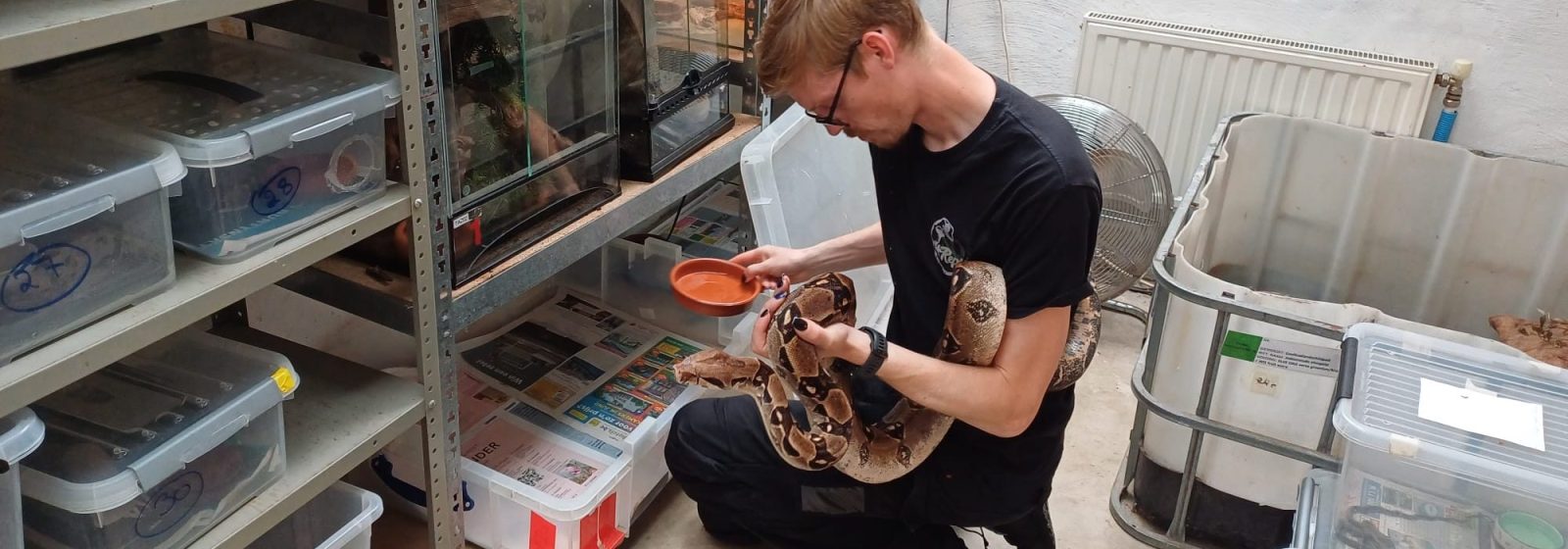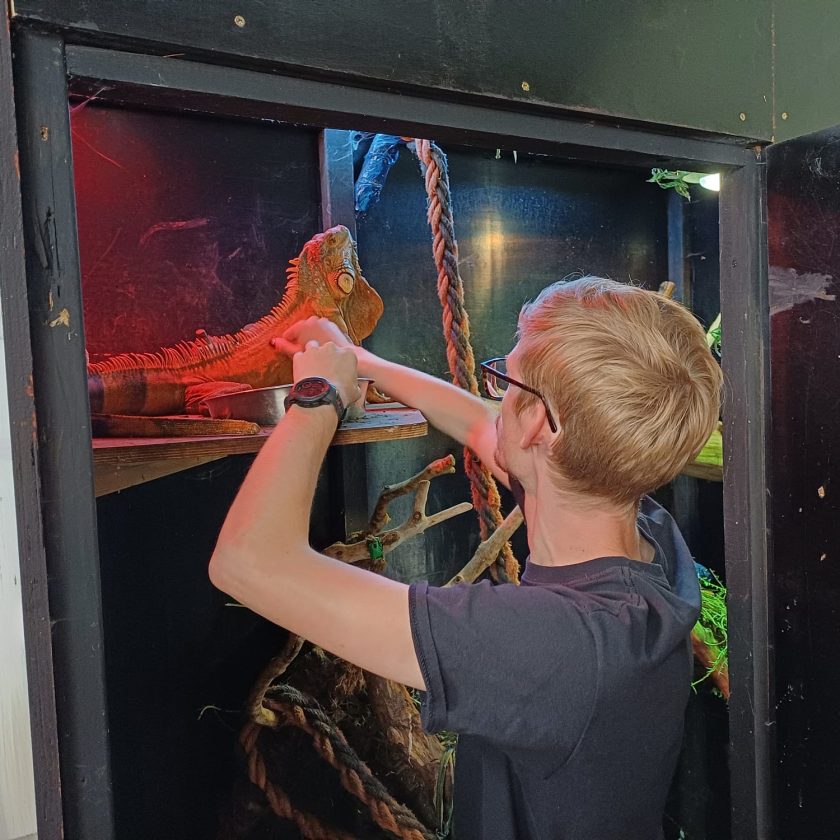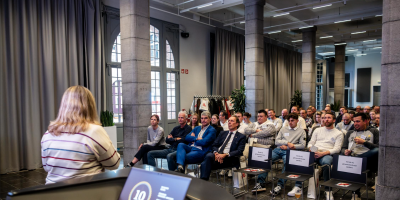
In the port of Zeebrugge, Wouter Verlinde scans containers every day as a customs officer. For our summer series, he talks about his love for reptiles and his volunteer work at SOS Reptile.
Wouter Verlinde works as a customs officer at the Zeebrugge port brigade. While during the day he scans containers looking for illegal goods, he spends his free time volunteering at SOS Reptile in Ichtegem, an organisation dedicated to the protection and care of reptiles.
His fascination with animals started several years ago when he brought his first reptile into his home. His interest has only increased since then. “Reptiles are amazing animals,” he enthuses. “They are the most dinosaur-like animals, which have adapted to all kinds of conditions and therefore always survived.”
Volunteer
When he saw on Facebook that SOS Reptile was still looking for volunteers, he immediately applied. Every week, he spends eight hours at the reptile centre. “I work in shifts, so I can take care of the animals for four hours in the morning. That ranges from changing water tanks to cutting vegetables for the herbivores to feeding the snakes with frozen mice.”
Continue reading below the photo.

In addition to daily care, Wouter Verlinde administers medical first aid and medication. He also transports sick animals to the Faculty of Veterinary Medicine in Merelbeke. “Sometimes I also collect animals from private individuals or bring found animals to our shelter,” he adds.
Cargo animals
The reasons why reptiles end up at SOS Reptile are varied. “We have many aquatic turtles released into the wild and corn snakes found by hikers after their winter hibernation,” he says. There are also illegal animals staying there, confiscated by the police. “We have a dog-headed boa that will soon move to the zoo in Antwerp,” he says.
Finally, cargo animals also end up in Ichtegem. Often, these animals end up by chance in containers with a load of tropical timber, for example. “When unloading, the extra ones are noticed,” he says. For logistics companies, Wouter Verlinde has a clear message. “If you come across a cargodier, take a photo, send a message to SOS Reptile and call the fire brigade. Do not try to catch the animal yourself.”
He refers to the employees of a company in Ghent who once tried to catch a dangerous venomous snake. In the process, one of the employees was then bitten. “That is a dangerous situation. It is better to keep an eye on the animal and not interact. You never know what species it is about. It is difficult to determine by sight whether the animal is dangerous.”
Permanent residence
All legal animals such as king pythons, bearded dragons and corn snakes, can be adopted after inspection and possible quarantine period. “For the illegal animals, we are looking for a permanent home, both at SOS Reptile and other zoos, including the zoo.”
SOS Reptile is working hard on a new building that will give the crocodilians a permanent home. Construction is progressing slowly but steadily. “As a non-profit organisation, we live off donations. We also provide educational training, for example to the fire brigade on how to catch reptiles.”
Working with a caiman or a large iguana involves risks, but Wouter Verlinde feels safe thanks to the thorough training he received. “All our animals also have a colour code – from green to red – indicating the risk. Some volunteers only take care of the animals with green code, while others are also allowed to work with more dangerous animals. Taking care of a two-metre boa constrictor still gives an adrenaline boost, though. If you know what you are doing, the danger is not so bad,” he concludes.




